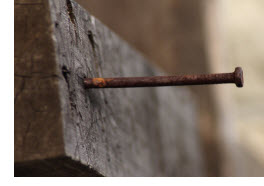In the course of business this week, I noticed that certain comments triggered hurt feelings.
Of course, I understand that a little conflict is normal (or even beneficial). Yet, last week was Yom Kippur (which means "Day of Atonement" and is one of the highest holy days in the Jewish religion). So, I was sensitive to it in a way I usually might not be …
During Yom Kippur, one of the rituals is to read down a list of sins (text available here), apologizing for the ones that you committed (and asking for forgiveness and promising to do better next year).
This isn't your garden-variety list of sins. Many of the items on the list don't have to happen 'physically'. So, even if you have managed to stay on the right side of the Ten Commandments, and haven’t killed or stolen … you have most likely been frivolous, stubborn, hurtful, dismissive, or judgmental.
I recognize that, sometimes, some of those traits can be part of effective strategies. And normally, people just brush off these smaller-scale sins with the excuse with: "I was angry"; or “I’m only human”; or "There is no place for cry-babies in business." Nevertheless, it’s important to remember that we should strive to be better, and that even these smaller sins can be harmful to the people around us.
To drive the point home further, here is the story of "The Nail in a Fence." While you might have seen it before, it is worth reading again.
Nail In The Fence:
There once was a little boy who had a bad temper. His Father gave him a bag of nails and told him that every time he lost his temper, he must hammer a nail into the back of the fence.
The first day the boy had driven 37 nails into the fence. Over the next few weeks, as he learned to control his anger, the number of nails hammered daily gradually dwindled down.
He discovered it was easier to hold his temper than to drive those nails into the fence.
Finally the day came when the boy didn't lose his temper at all. He told his father about it; and the father suggested that the boy now pull out one nail for each day that he was able to hold his temper.
The days passed and the young boy was finally able to tell his father that all the nails were gone.
The father took his son by the hand and led him to the fence. He said, "You have done well, my son, but look at the holes in the fence. The fence will never be the same. When you say things in anger, they leave a scar just like this one. You can put a knife in a man and draw it out. It won't matter how many times you say I'm sorry, the wound is still there."
A verbal wound is as bad as a physical one.
This story is a reminder to be mindful of cause and intent. Hope it helps.
What do you think?


